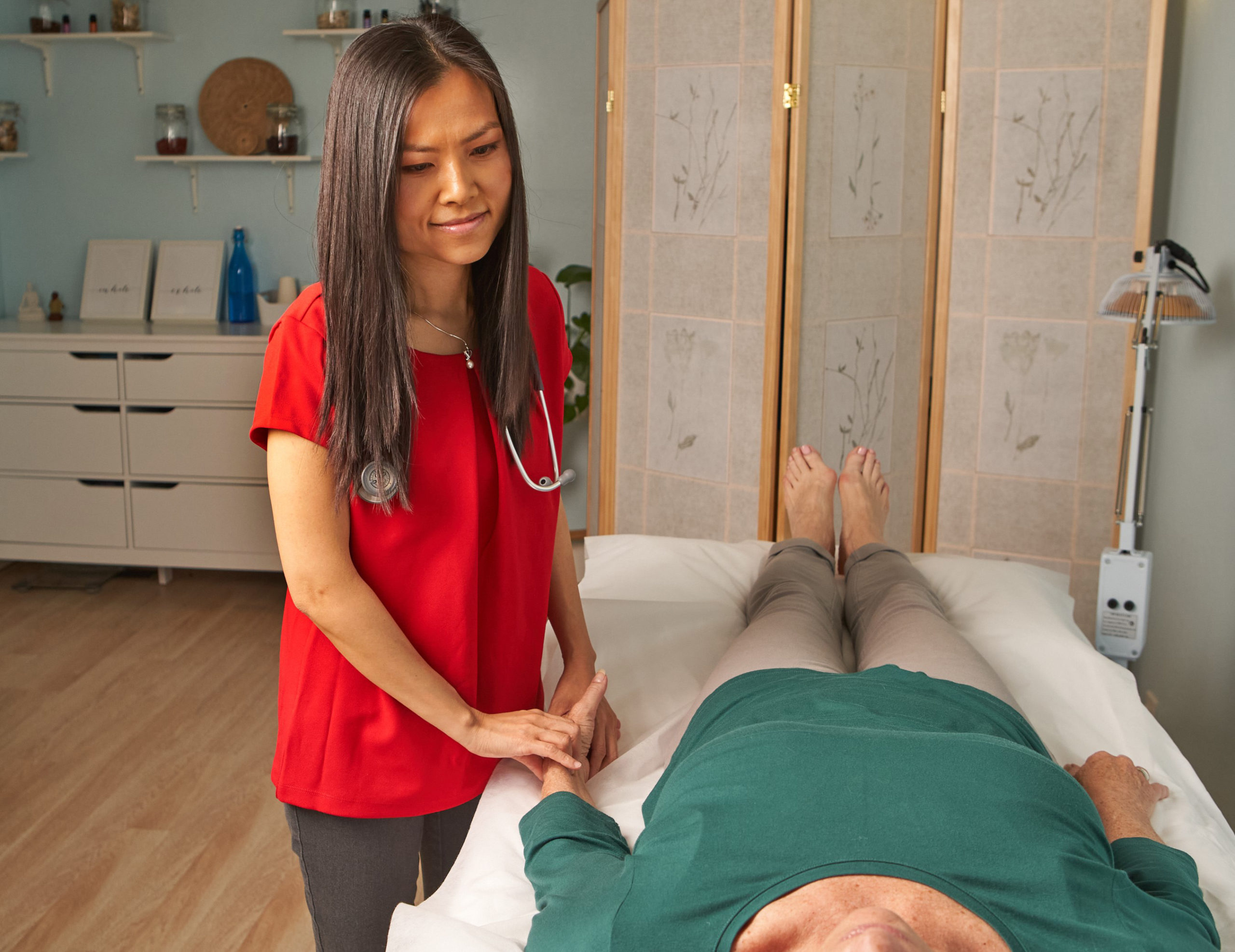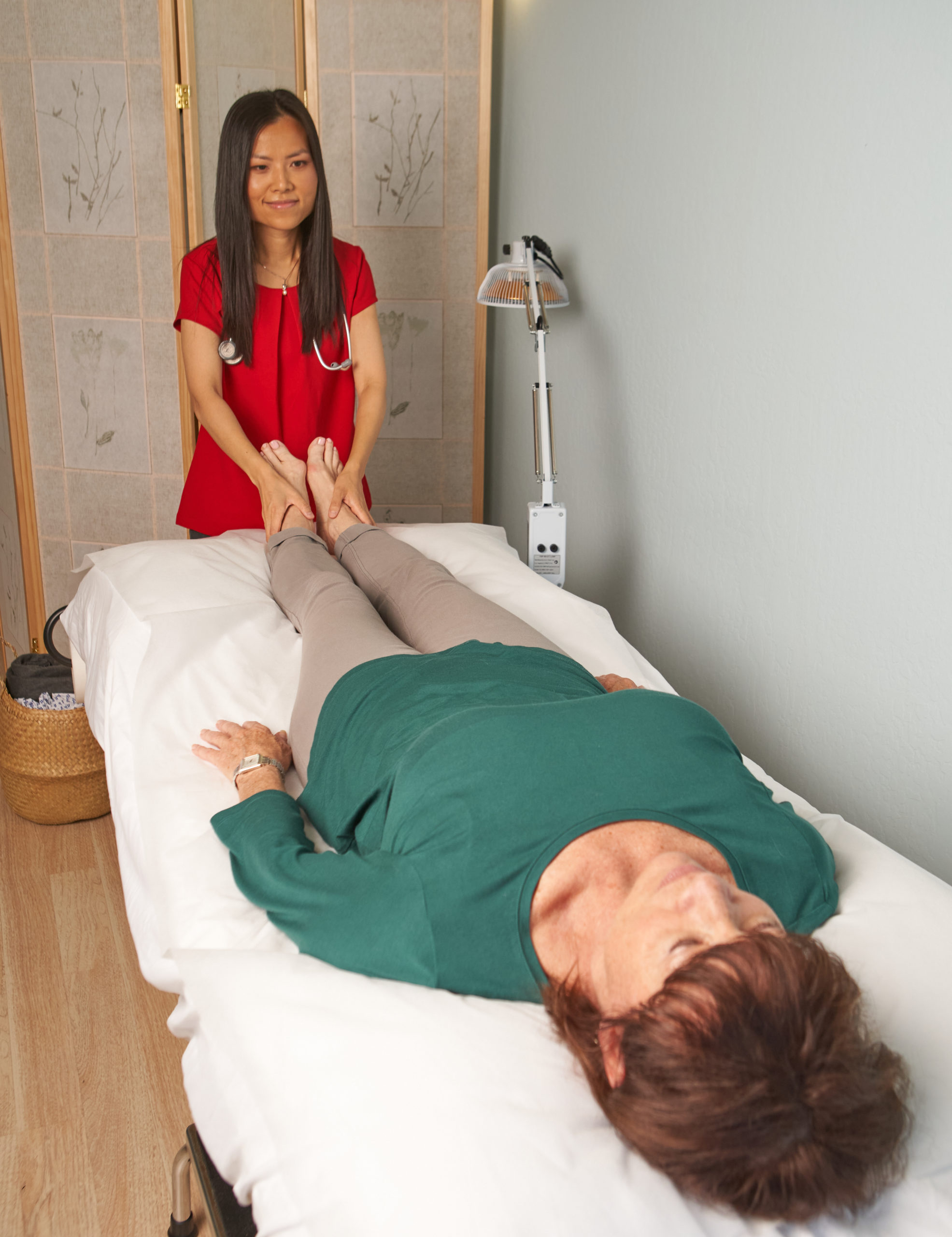
If you are one of the 40 percent of the adult population who has difficulty staying asleep or even falling asleep, you will be happy to learn that a better, more fulfilling sleep is in your future. Stress and anxiety are considered the primary underlying causes of sleeplessness, which means your mind is fighting with your body when you most need to relax and decompress. Chronic pain is another underlying reason for sleepless nights as it is more difficult to get comfortable enough to drift off into dreamland. Chronic insomnia can be dangerous for your heart, mind, and overall health.
Insufficient sleep symptoms include shorter sleep duration, difficulty falling asleep, waking up frequently, and being unable to get back to sleep once awoken. According to Chinese medicine, in addition to external forces that affect emotions and stress-related conditions, sleep disorders are caused by insufficient nutrients, poor circulation, or issues with your various internal organs.
Acupuncture can help bring the body back into a healthy mind-body balance. Acupuncture can be highly beneficial in treating poor sleep patterns as it can:
- Quiet the mind
- Increase relaxation
- Decrease stress
- Increase the release of natural melatonin
- Reduce chronic pain
- Reduce sleep apnea
- Improve clarity
At 2DotsHealth, we address the root causes rather than treating symptoms. We have the tools, knowledge, and experience to help improve your sleep quality and overall health quotient. Plus, when you sign up for acupuncture with 2DotsHealth, we use whatever modalities are best for your situation. That may include gua sha, cupping, and more, along with an acupuncture treatment.
Additional Recommendations
Of course, some things can be done prior to or in addition to a series of acupuncture treatments. Although they will seem quite logical and straightforward, it is surprising how many people avoid doing the obvious.
Turn off the television, laptop, tablet, cell phone, and other electronic devices before bedtime. This means turning off electronics at least 30 minutes prior.
Avoid catnaps. Sleeping during the day can make a night of quality sleep more difficult as the body and mind are not quite as weary.
Avoid food before sleep. The last thing you want your body to have to do is to spend its energy digesting what you just ate. The rule of thumb is to eat 2-3 hours before bedtime for a better night’s sleep.
Listen to calming music. Most homes now have an electronic virtual assistant that will be happy to play soothing meditative music for a specific length of time.
Avoid coffee, soft drinks, or other stimulants. As a rule, avoid anything with caffeine. Also, alcoholic beverages consumed before sleep tend to induce a brief rest followed by an abrupt awakening just hours later.
Avoid exercising shortly before bedtime. Of course, exercising during the day is also great for overall health, but increasing your heart rate before bed does not lend itself to drifting off into slumber-land.
At 2DotsHealth, we emphasize: Eat Smarter. Sleep Better. Breathe Deeper. To get started on your journey toward quality sleep and better health, schedule an in-person or telemedicine visit here. Our initial consultations are 90 minutes long and integrate naturopathy, functional medicine, and traditional Chinese medicine perspectives.
We look forward to providing customized treatments for each of you.


